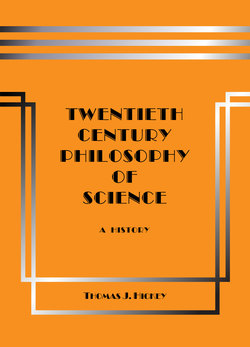Читать книгу Twentieth-Century Philosophy of Science: A History (Third Edition) - Thomas J. Hickey - Страница 73
На сайте Литреса книга снята с продажи.
3.42 Semantic Definitions of Theory Language
ОглавлениеFor the extinct neopositivist philosophers the term “theory” refers to universally quantified sentences containing “theoretical terms” that describe unobserved phenomena or entities. The nineteenth-century positivists such as the physicist Ernst Mach rejected theory, especially the atomic theory of matter in physics, because atoms had never been observed. These early positivist philosophers’ idea of discovery consisted of induction, which yields empirical generalizations rather than theories that contain theoretical terms.
Later the twentieth-century neopositivists believed that they could validate the meaningfulness of theoretical terms referencing unobserved microphysical particles such as electrons, and thus admit theories as valid science. But for discovery of theories they invoked human creativity and offered no description of the processes of theory creation.
The neopositivists viewed Newton’s physics as paradigmatic of theoretical science. They therefore also construed “theory” to mean an axiomatic system, because Kepler’s laws of orbital motion could be derived deductively as theorems from Newton’s gravitational law.
For the anachronistic romantic philosophers and romantic social scientists on the other hand “theory” means language describing subjectively experienced mental states such as ideas and motivations. Some romantics portray the theory-creation process as consisting firstly of introspection by the theorist upon his own personal subjective experiences or imagination. Then secondly it consists of imputing vicariously his introspectively experienced ideas and motives to the social members under investigation. The sociologist Max Weber called this verstehen. Thus since the social scientist can recognize or at least imagine the imputed ideas and motives, the ideas and motives expressed by his theory are “convincing” to him.
